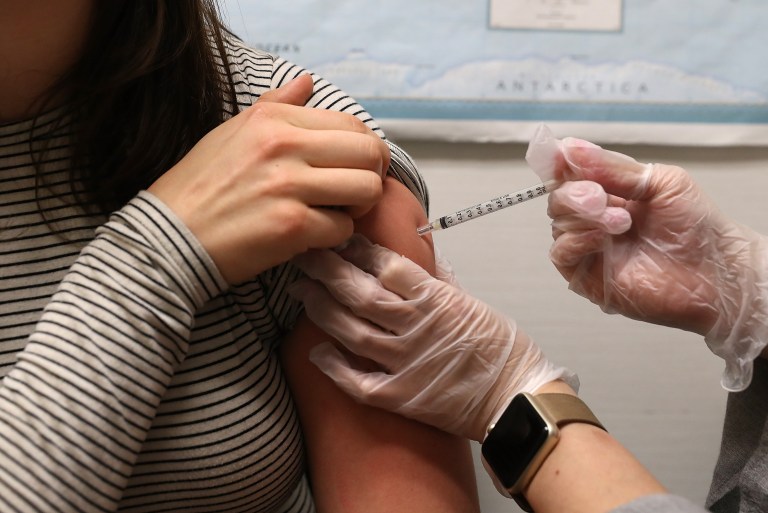Senate Republicans blocked a $35 monthly cap on the price of private market insulin on Sunday, which had been included in Democrats’ Inflation Reduction Act.
The measure was vetoed during a marathon session leading up to what Democrats had hoped would be the final passage of the bill.
On Saturday evening, the Senate began consideration of over 30 amendments to the act, a $700 billion piece of legislation aimed at combatting rising healthcare costs, climate change, and raising taxes on large corporations, per CBS News.
Three Votes Short Of Imposing A $35 Per Month Cap On Insulin Costs
Americans were just three votes short of having a $35 per month cap on costs for insulin, the otherwise expensive medication needed to treat diabetes.
These Republicans BLOCKED a $35 cap on insulin. pic.twitter.com/FPsHnaLzQA
— CAP Action (@CAPAction) August 7, 2022
Only seven Republican senators voted alongside 50 Democrats to keep the medication’s price ceiling in the legislation: Bill Cassidy of Louisiana, Susan Collins of Maine, Josh Hawley of Missouri, Cindy Hyde Smith of Mississippi, John Kennedy of Louisiana, and Lisa Murkowski and Dan Sullivan, both of Alaska.
The measure ultimately failed to gain the 60 votes necessary, with a vote of 57 to 43, to waive special budgetary rules and have the provision included in the bill.
In April, the House had passed a similar cap on the cost of insulin.
Democrats Look For Big Legislative Win Ahead Of Midterm Elections
Meanwhile, Democrats are hoping to pass the rest of the piece of legislation on Sunday, wherein it would briefly return to the House this week for approval.
"Insulin debt" is a phrase that only exists in a dystopia. pic.twitter.com/ufsZ9kZwv7
— Alan MacLeod (@AlanRMacLeod) August 7, 2022
If it passes, the victory would give President Joe Biden and congressional Democrats a crucial win before midterm elections, wherein they will look to maintain control of Congress, according to CBS News.
Democrats have called the piece of legislation the answer to rising inflation and healthcare costs. The package would allow Medicare to negotiate prescription drug prices, extend enhanced health insurance subsidies that were otherwise set to expire, and impose a 15 percent minimum tax on corporations that make over $1 billion per year.
The price of insulin in the United States is so high it has led to nearly 4 in 5 diabetics who rely on it taking on debt, per reports.


